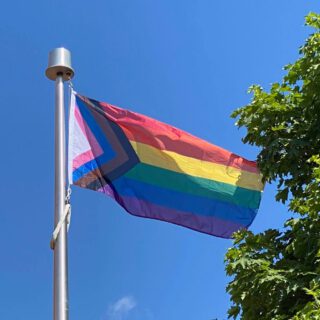
Pride Month celebrates the diverse LGBTQ2S+ community, and advocates for equality and inclusivity.
Passionate voices from mass anti-racism protests have filled the globe as the Black Lives Matter movement fights for freedom and justice. This month also celebrates Indigenous History Month as well as National Indigenous Peoples Day to honour the unique heritage, rich traditions, and cultural diversity of Indigenous peoples in Canada.
Niagara Region would like to acknowledge the traditional territory of the Haudenosaunee and Anishinaabe Peoples. Niagara Region Public Health and Emergency Services wish to mark the importance of both Indigenous History Month and National Indigenous Peoples Day and is pleased to share Creating Our Way Forward: Recommendations for Improving Niagara Region Public Health and Emergency Services’ Indigenous Engagement.
This project is based on the Truth and Reconciliation Commission’s health-related calls to action.
The report aims to highlight the gaps within Niagara Region Public Health and Emergency Services programs and services, explore how to improve collaboration between the local Indigenous organizations and local health organizations, and ensure dedication to the calls to action.
A highly recommended local Indigenous consultant, Kelly Fran Davis, used Indigenous research methods and consulted with various stakeholders, including staff from across Niagara Region Public Health and Emergency Services, community partners from across the region, staff from four local Indigenous organizations, and community members through an online survey.
“This month, we have all been reminded of the systemic racism and inequity that persists in our society, including amongst Indigenous persons in Canada,” said Dr. M. Mustafa Hirji, medical officer of health (acting), Niagara Region Public Health and Emergency Services.
“Combatting this is core to our values, and we’ve resolved that our first step should be to look inwards and correct where we fall short ourselves. This report is part of our effort to do that. By sharing the report publicly, we hope to normalize such introspection, and allow ourselves to be held accountable for improvement.”
The recommendations from the report included 22 immediate, short and long-term actions, including
- Supply Indigenous-related resources to all employees and Board of Health members
- Hire an Indigenous liaison (or similar) to develop a Niagara specific Strategic/Action Plan
- Arrange for all staff to participate in Cultural Safety Training
- Encourage leaders and staff to better engage with local Indigenous events and organizations
- Ensure resources are available that include Indigenous context and content
- Establish relationships with local educational institutions regarding Indigenous initiatives
- Explore and research the cultural determinants of health that impact Indigenous health
- Establish strong Indigenous representation in decision-making processes
- Hire supporting Indigenous specific positions and include Indigenous student placements
The Niagara Region Public Health and Emergency Services senior leadership is committed to furthering the recommendations in this report, starting with meeting with the leaders of the local Indigenous organizations to further inform the listed actions, while continuing to train staff using the San’yas Indigenous Cultural Safety Training and pursuing additional in-person or virtual educational opportunities for all staff.

